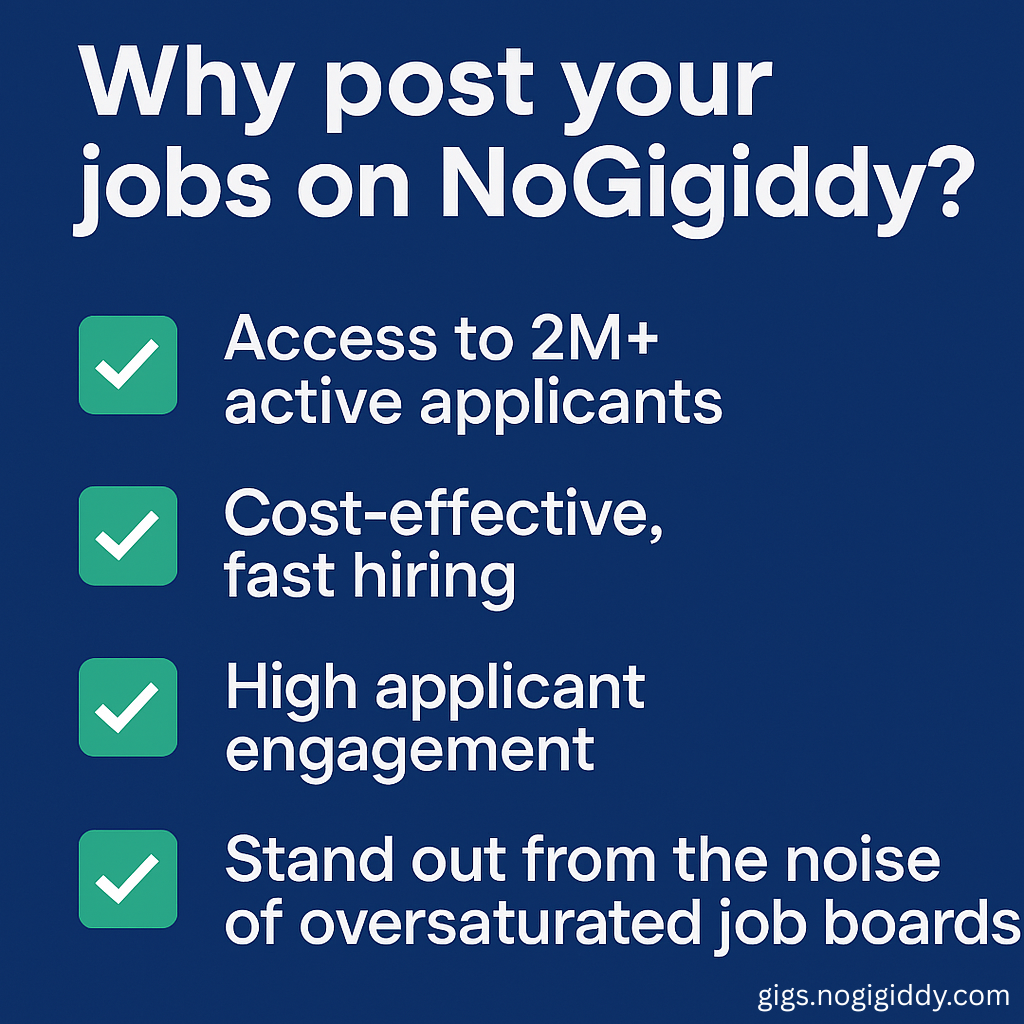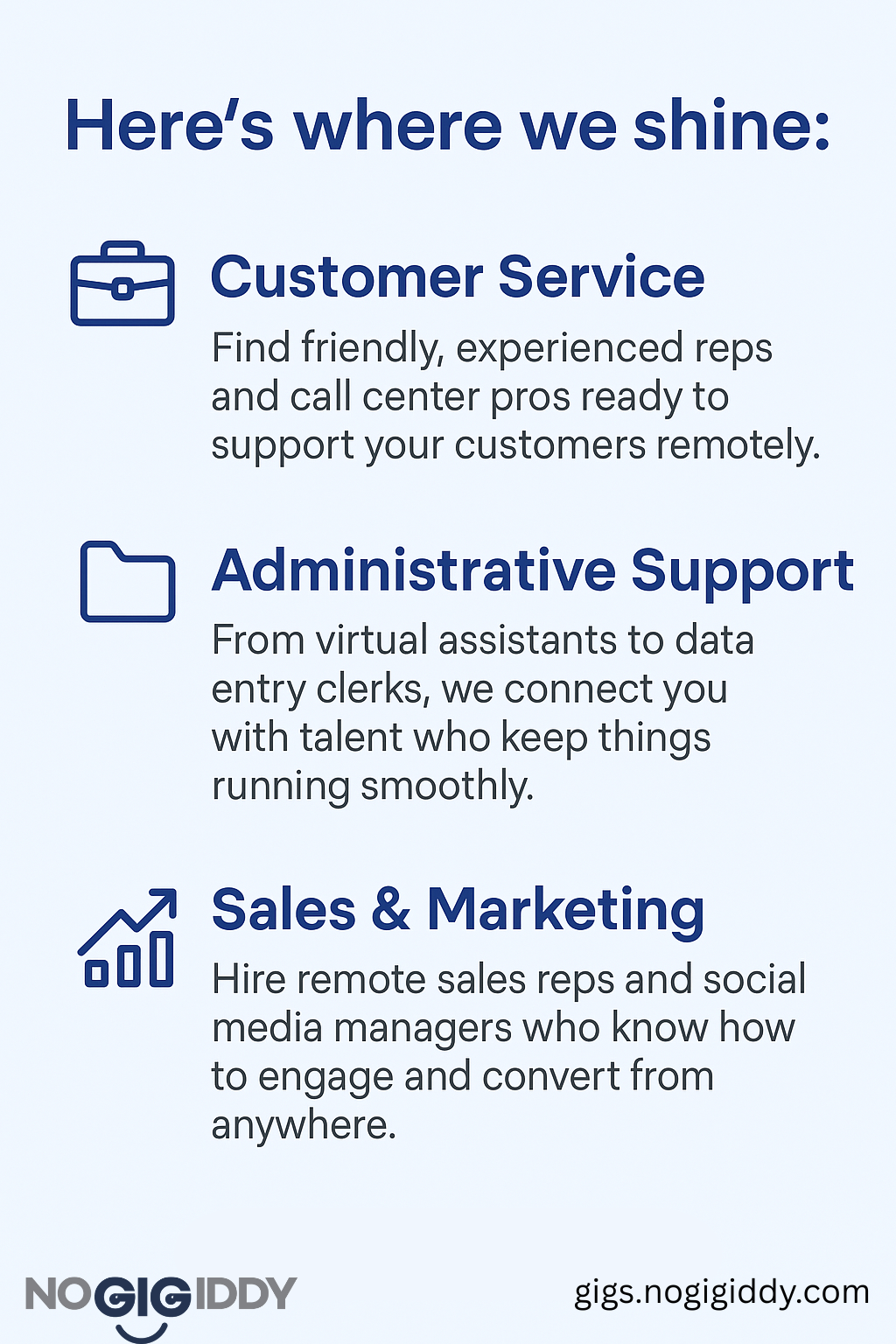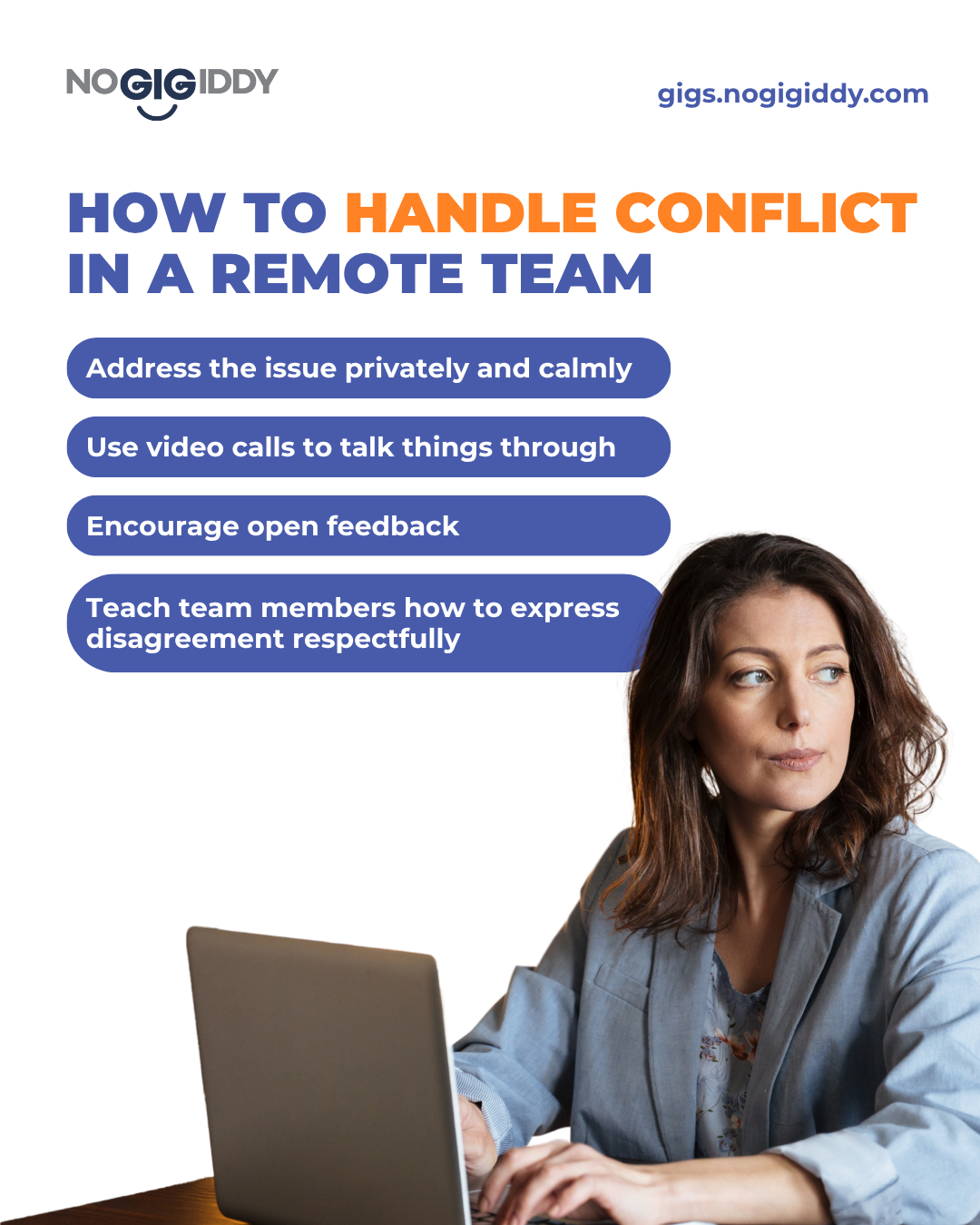Estimated Reading Time: 5 Minutes
When your team is spread across cities — or even time zones — misunderstandings can happen more easily than you think. Messages get misread. Tone gets lost in translation. And before you know it, tension builds between employees who have never met face-to-face.
If you’ve ever thought, “We’re a great team, but remote work sometimes makes communication harder,” you’re not alone. Every leader managing a remote team has faced this challenge.
At NoGigiddy, we know conflict isn’t a sign of failure — it’s a sign that people care about their work. The key is handling it the right way.
In this 5-minute read, you’ll learn how to:
- Identify early signs of conflict before they escalate
- Create a process for addressing disagreements calmly
- Foster a culture of openness and respect
- Use communication tools strategically to build stronger relationships
Let’s dive in.

1. Address the Issue Privately and Calmly
When conflict arises, it’s tempting to address it publicly during a meeting or team chat. But that can make people defensive. Instead, schedule a private one-on-one conversation with each person involved.
Start with empathy: “I noticed some tension between you and [Name] during our last project. I want to make sure everyone feels heard — can we talk about it?”
This approach helps your team see that your goal is resolution, not blame.
Pro Tip: Take notes during the conversation to ensure you’re hearing both sides accurately — and never jump to conclusions until you have the full story.

2. Use Video Calls to Talk Things Through
Written communication can be tricky — tone and intent often get lost in translation. That’s why face-to-face conversations (even virtual ones) are crucial.
A video call helps restore humanity to the discussion. You can read facial expressions, body language, and tone — all things you miss in a Slack message or email thread.
If possible, bring both parties together for a short call after speaking to them individually. Encourage open, respectful dialogue and keep the focus on solving the problem, not assigning blame.
3. Encourage Open Feedback (and Model It Yourself)
If your team fears speaking up, small frustrations can turn into big conflicts. Make feedback a normal part of your company culture.
Start with yourself — share openly about what you’re working on improving. This builds psychological safety and lets your team know that feedback isn’t personal; it’s part of growth.
Create a system where team members can regularly share what’s working and what’s not — through surveys, retrospectives, or even short weekly check-ins.
Example: “Let’s each share one win and one challenge from this week — no judgment, just transparency.”
Related Article: https://gigs.nogigiddy.com/blog/building-trust-with-remote-staff-you-ve-never-met

4. Teach Respectful Communication
Remote teams thrive on communication — but only when that communication is handled with care. Make it clear that disagreement is welcome, but disrespect isn’t.
Provide guidelines or examples of how to express disagreement constructively:
- Use “I” statements instead of “you” accusations (“I felt left out of the decision” vs. “You didn’t include me”).
- Focus on solutions rather than problems.
- Always assume good intent before reacting.
You can even hold a short team training on healthy communication styles — it’s one of the best investments you’ll make in your remote culture.
5. Follow Up and Reinforce Positive Change
After conflict has been resolved, don’t assume everything is fine forever. Follow up with a quick check-in after a week or two. Ask how things are going and whether communication has improved.
This small act shows that you care about the long-term health of your team dynamic, not just a quick fix.
Bonus Tip: Recognize when someone demonstrates positive behavior during or after a conflict — maybe they apologized, took initiative, or helped a teammate. Public acknowledgment reinforces that collaboration and respect are company values.
Related Article: https://gigs.nogigiddy.com/blog/how-to-build-connection-without-a-break-room

Ready to Build a Stronger Remote Team?
👉 Post your first job for free at gigs.nogigiddy.com
Because great teams aren’t built by avoiding conflict — they’re built by growing through it.
